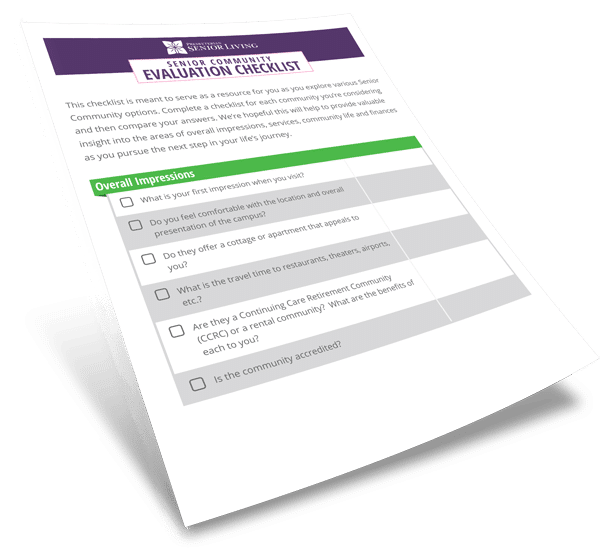Giving voice to the topics that mean the most to those who matter the most.
March is here, which means it’s National Nutrition Month! You’ve probably heard all about how proper nutrition can improve your quality of life and even help you live longer, but did you know it could also boost your memory?
Share
Caregiver Support | Health & Aging
Alzheimer’s disease, and dementia as a whole, can be scary. It can cause seniors to withdraw from family and friends, and can cause them to lose interest in activities they once loved. It can be hard to see your loved one go through these changes, but there are some things you may be able to do to help. Maintaining those waning interests and relationships may reduce the effects of Alzheimer’s and dementia, and may allow your loved one to live a better life.
Share

Subscribe to the Presbyterian Senior Living blog and receive our free Community Evaluation Checklist to ensure you ask what’s most important to you.
Caregiver Support | Health & Aging
Deciding what kind of care your elderly loved one needs can be a difficult task. At some point you’ve probably wondered to yourself if they need the kind of care only professionals can provide, even though it means being away from their family. On the other hand, can you afford to keep them at home despite the added stress that would bring? The reality will differ for every person, but there are some universal pros and cons to consider when making the decision.
Share
Moving into a senior living community can be stressful, but there are ways to make the transition go smoothly. Follow these simple tips before, during, and after the move to ensure the process is as easy as possible.
Share
It can be hard for seniors who have lost their life-long partner, especially on the one holiday of the year meant to celebrate that love. But Valentine’s Day doesn’t have to be a day of sorrow for the senior in your life, there are ways you can share the love and turn the holiday into a celebration of the bond between your family.
Share
Seniors on fixed incomes might find themselves looking for quick and easy ways to save money, and one of the first places people look is to the heating bill. While turning down the heat can save a few bucks, it’s not always the best course of action for seniors. And, as it turns out, there are other, more efficient ways you can lower your monthly bill.
Share